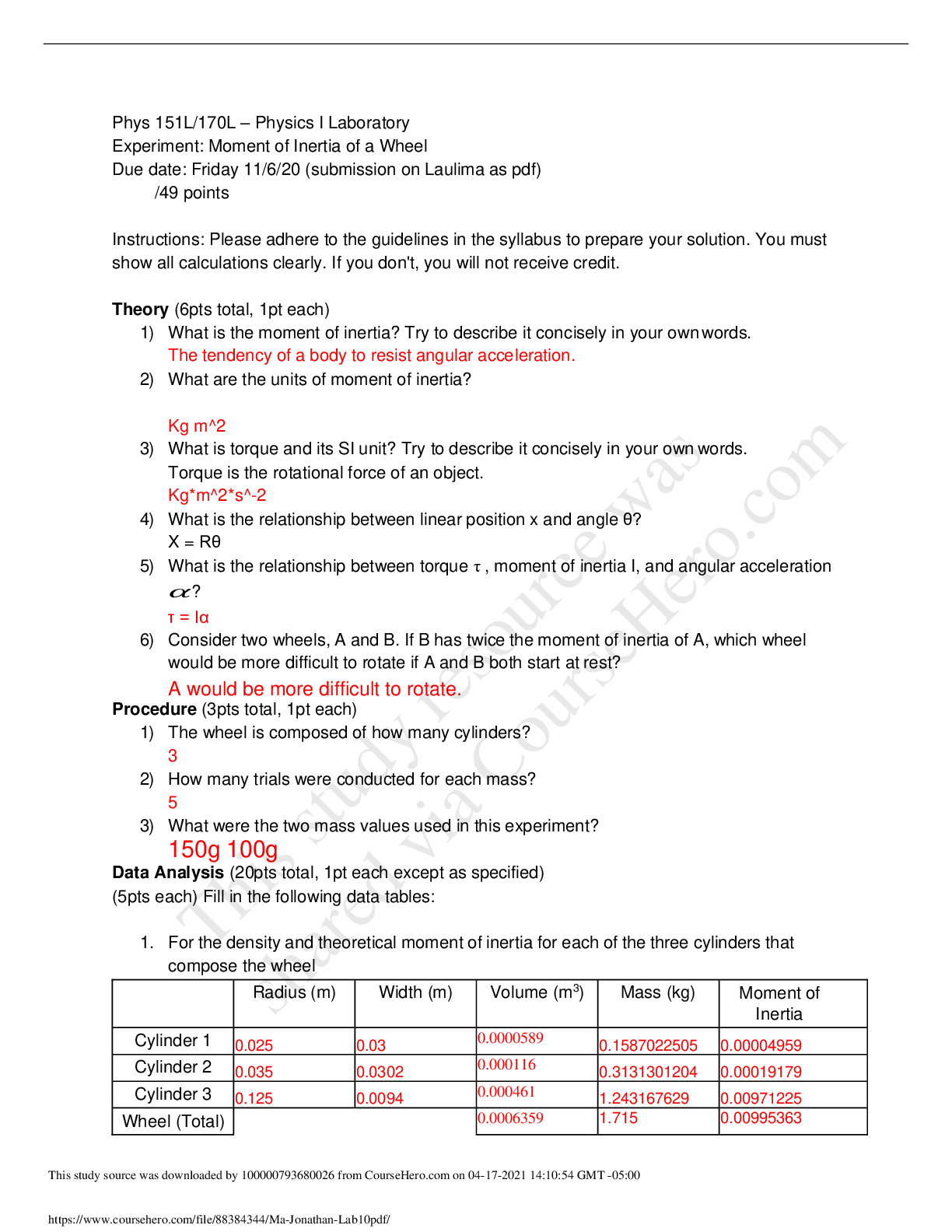Law > QUESTIONS & ANSWERS > Curtin University BLAW 2910 sharadahuja11 (All)
Curtin University BLAW 2910 sharadahuja11
Document Content and Description Below
Chapter 7 - Cases 5 and 8 Case 5 The Garden Book Company advertised in a local newspaper the publication of its latest book on flower growing. The advertisement indicated that orders would be taken... by mail at a price of $30 per copy, but the book would be available at all book stores as well. In response to the advertisement, Laurel Bush sent her cheque for $30 to the Garden Book Company, and requested in her letter that the company send her a copy of the book by return mail. Laurel mailed her letter on February 19th. On February 21st, Laurel noticed the same book on sale at a local book store at a price of $9.95. She purchased a copy, then went home and immediately wrote a letter to the Garden Book Company revoking her offer to purchase the book, and requested a return of her $30 cheque. Laurel mailed her letter at 4:20 p.m. on February 21st. The Garden Book Company received Laurel’s letter of February 19th on February 22nd, and mailed her a letter the same day that acknowledged her order and advised her that the book would be sent to her by courier within a few days. The Garden Book Company received Laurel’s letter of February 21st on February 23rd. The company ignored her second letter, and delivered the book to the courier on February 25th. Discuss the rights of the parties in this case. Identify and explain the legal principles and rules applicable, and indicate in your answer how the case would be decided if the matter came before the court. Answer: This case raises the issues related to acceptance of an offer, and the application of rules concerning acceptance and revocation. Students should note that Laurel Bush made an offer by mail to purchase a book. The nature of this offer might be examined by asking the question. Was this an offer that required acceptance by an act? Was the letter of acceptance by the Company a valid acceptance of the offer? Was the acceptance complete when the letter was mailed? Laurel's letter of revocation would only be effective when received by the Company, and was received by it on February 23rd. The Company, aware of the revocation, completed its part of the 'contract' on February 25th. Students may be asked if the revocation was effective on February 23rd. Under the terms of Laurel's offer, acceptance was to be made by sending her the book by return mail. The offer did not require acknowledgement, but rather, the performance of an act. The Company's letter of acceptance, therefore, would probably not be effective acceptance when mailed, but only effective when received. The mailing of the book after receipt of the letter of revocation would probably not be effective acceptance of the offer. Case 8 Tom was tired of running his business and was looking for a buyer so he could retire before the winter. Bill wanted to buy the business, but needed another month to raise the necessary finances. Tom said to Bill: “Look, for $5,000, I will 1 give you an option to purchase in 30 days, but if you are not ready to buy at that time for fifty thousand, I am going to sell it to Dan.” Bill paid Tom the $5,000. Thirty days later, Bill appeared at Tom’s door with $45,000. Tom said: “Sorry, I am going to sell it to Dan. I said the price was $50,000.” Bill was confused, and sought legal advice. What advice would the lawyer provide to Bill? Answer: The option to purchase in this case was a promise by Tom to hold open the promise to sell the business for a 30 day period. Offer and acceptance in the option agreement was finalized when Bill paid over the $5,000. The issue here for students to consider is whether the $5,000 was to be a part of the purchase price of the business. Was the option a separate contract? No mention was made of the $5,000 being a part of the purchase price. Was the offer to sell the business for $50,000 a separate contract offer? It could be argued that it was, in which case Bill did not properly accept the offer when he met with Tom in 30 days and presented him with $45,000 instead of the $50,000 stated in the offer. Chapter 8 - Cases 1 and 8 Case 1 Jane and Henry were married and Jane’s father, a farmer, told her and Henry that he had no use for the old pasture north of the meadow. He suggested that they could build a house on the property, saying, “It will be all yours anyhow when I’m gone.” Jane and Henry did so, and five years later, Jane and her father had a terrible falling out. Her father changed his will to give all of his property to the Humane Society, and within the year he died. When the executor of the will read its terms, he began proceedings to evict Jane and Henry from the property and to sell their house. Discuss the legal issues raised in this scenario. Answer: The facts of this case raise the issue of promissory estoppel, since Jane and Henry clearly acted to their detriment by building a house on the property in reliance on her father’s promise of the property on his death. One question may be the extent of the property Jane and Henry may claim. Would this be only the “old pasture north of the meadow”or the father’s entire estate? A court might decide that their claim would be limited to the property where the house was located, as their 2 reliance on the father’s promise (by building a house) was limited to ‘the old pasture’. Case 8 Levine’s car stopped running on the highway, and a passing motorist called a service station for him on a mobile phone. The service station called an independent tow truck operator, who soon towed the car to the service station, some 5 km distant. A mechanic examined the car, and realized that a wire had come loose from the distributor cap. He snapped the wire back into place, and wrote up a bill. Levine was charged $5 for the repair and $175 for the tow. Levine was outraged and refused to pay. What would be the nature of the claim, and what factors would the court consider in deciding the case? Answer: This case concerns quantum meruit. The passing motorist made the call to the service station at Levine’s request. The request for service was probably broad enough to authorize the service station operator to tow Levine’s vehicle to the service station – a reasonable expectation, but was it also reasonable for Levine to believe that the service station operator might come to where Levine’s vehicle was located to make the repairs? Probably not. Under quantum meruit, the service station operator would be entitled to charge a reasonable price for his services. The $5 was probably reasonable. The tow truck operator charged $175 for a 10 km. round trip. Was this a reasonable charge? If this was the usual charge by other operators in the area, then the charge would stand, and Levine would be obliged to pay both of the charges. [Show More]
Last updated: 1 year ago
Preview 1 out of 213 pages
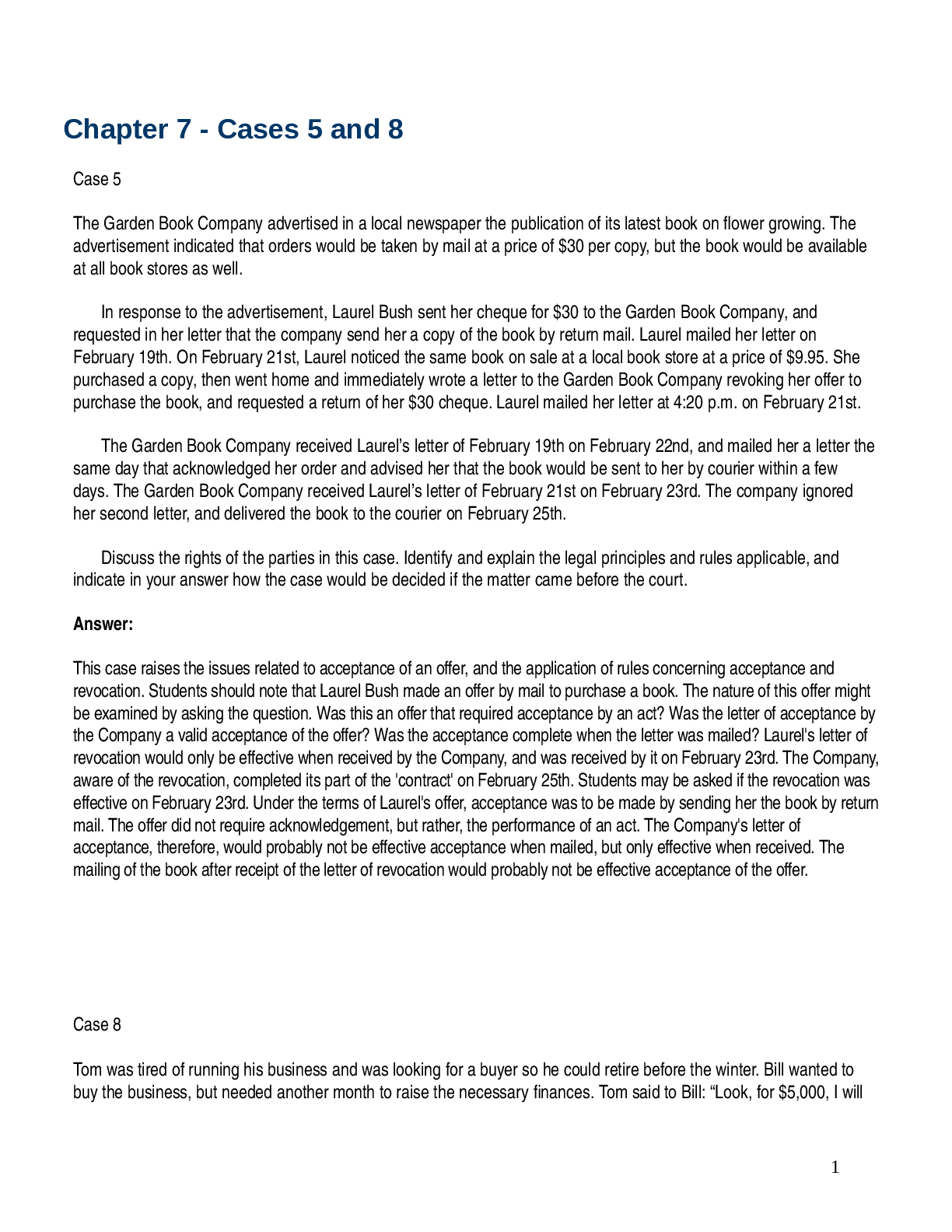
Buy this document to get the full access instantly
Instant Download Access after purchase
Add to cartInstant download
We Accept:

Reviews( 0 )
$8.00
Document information
Connected school, study & course
About the document
Uploaded On
Nov 25, 2022
Number of pages
213
Written in
Additional information
This document has been written for:
Uploaded
Nov 25, 2022
Downloads
0
Views
36

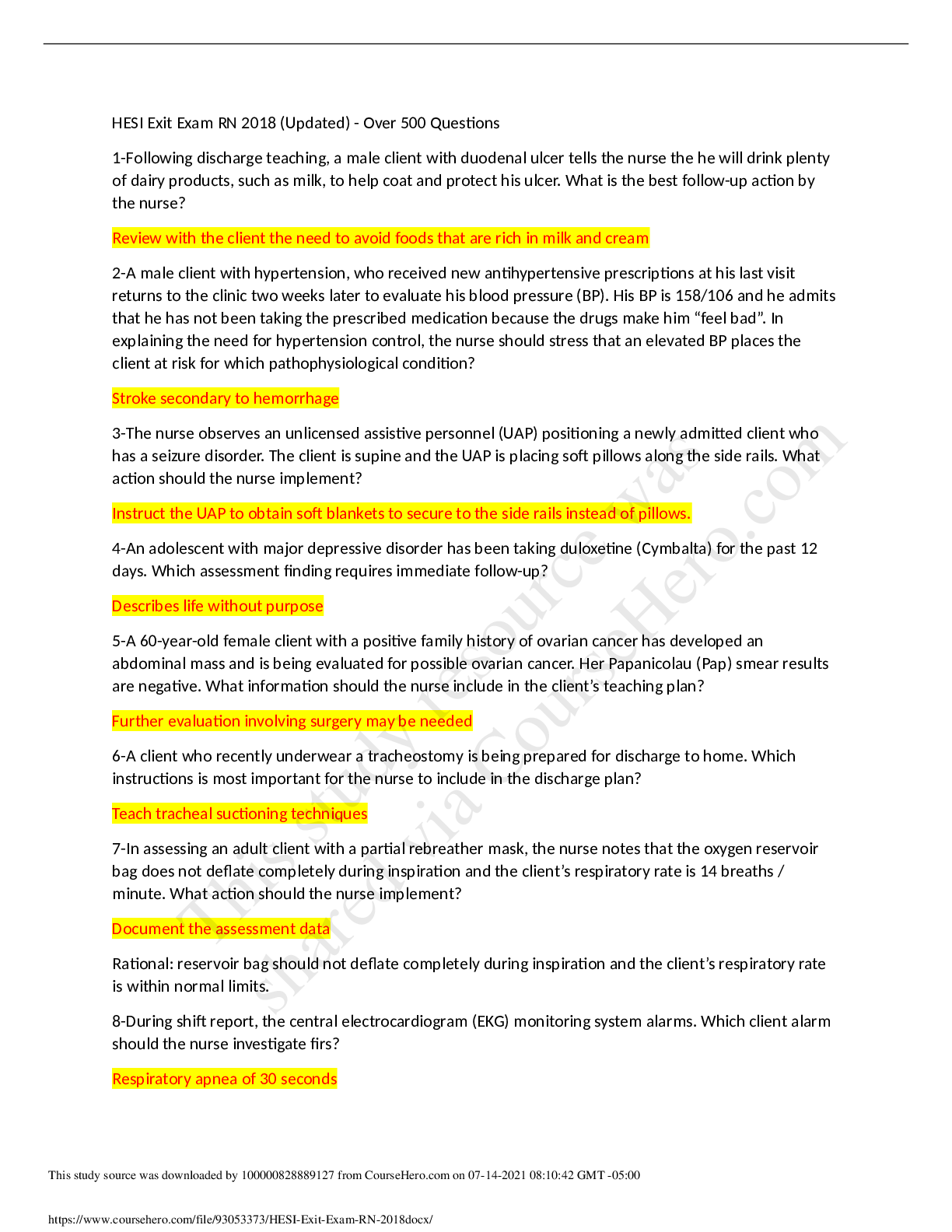
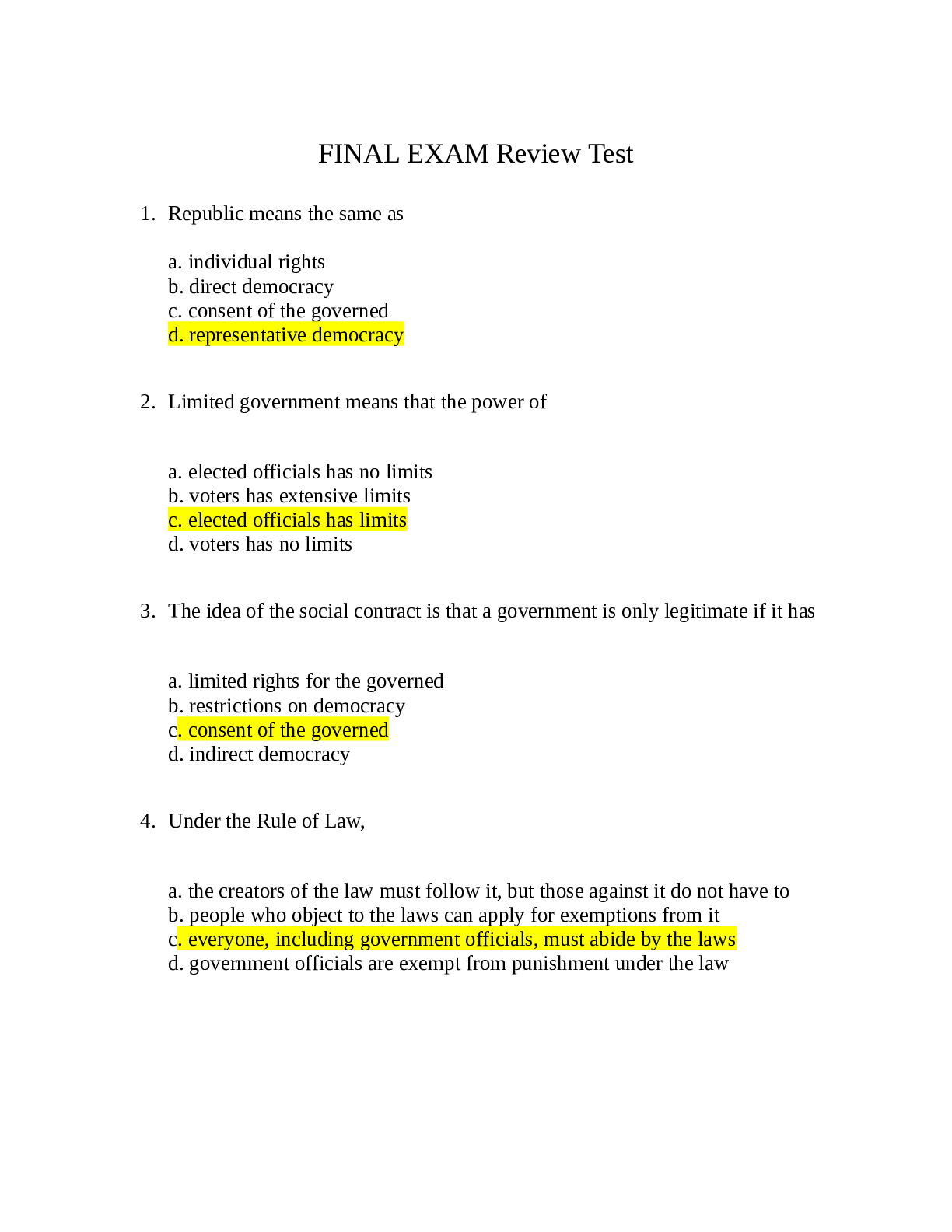
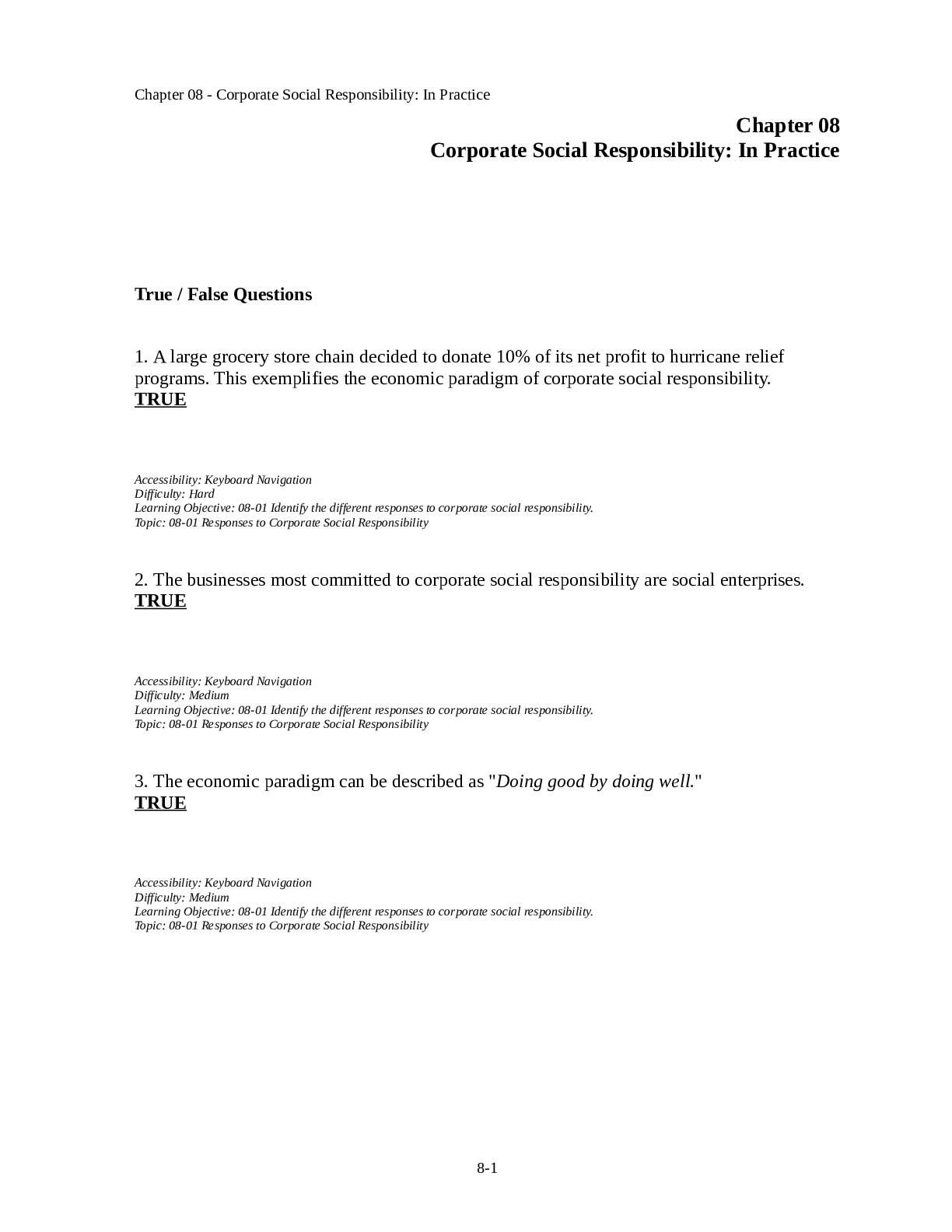
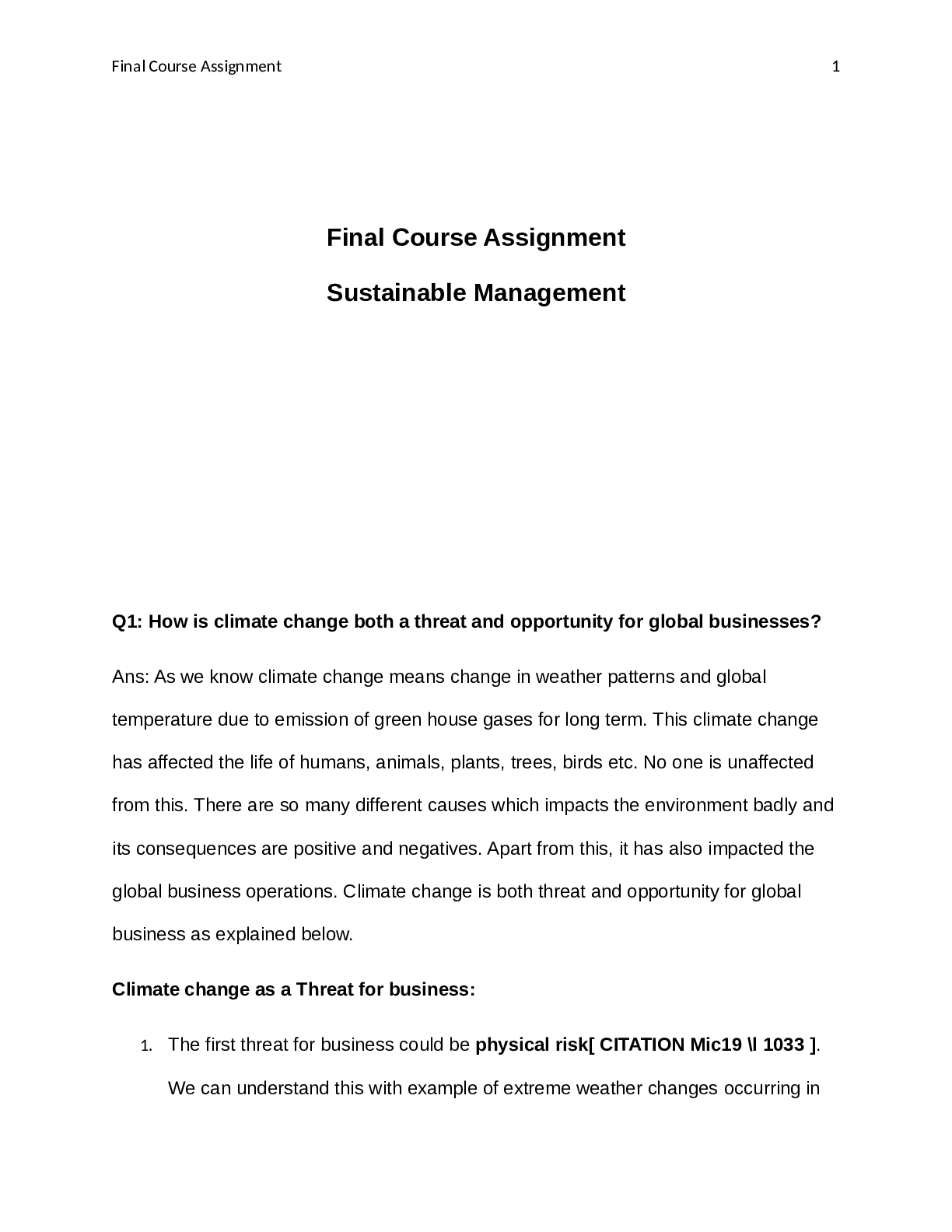
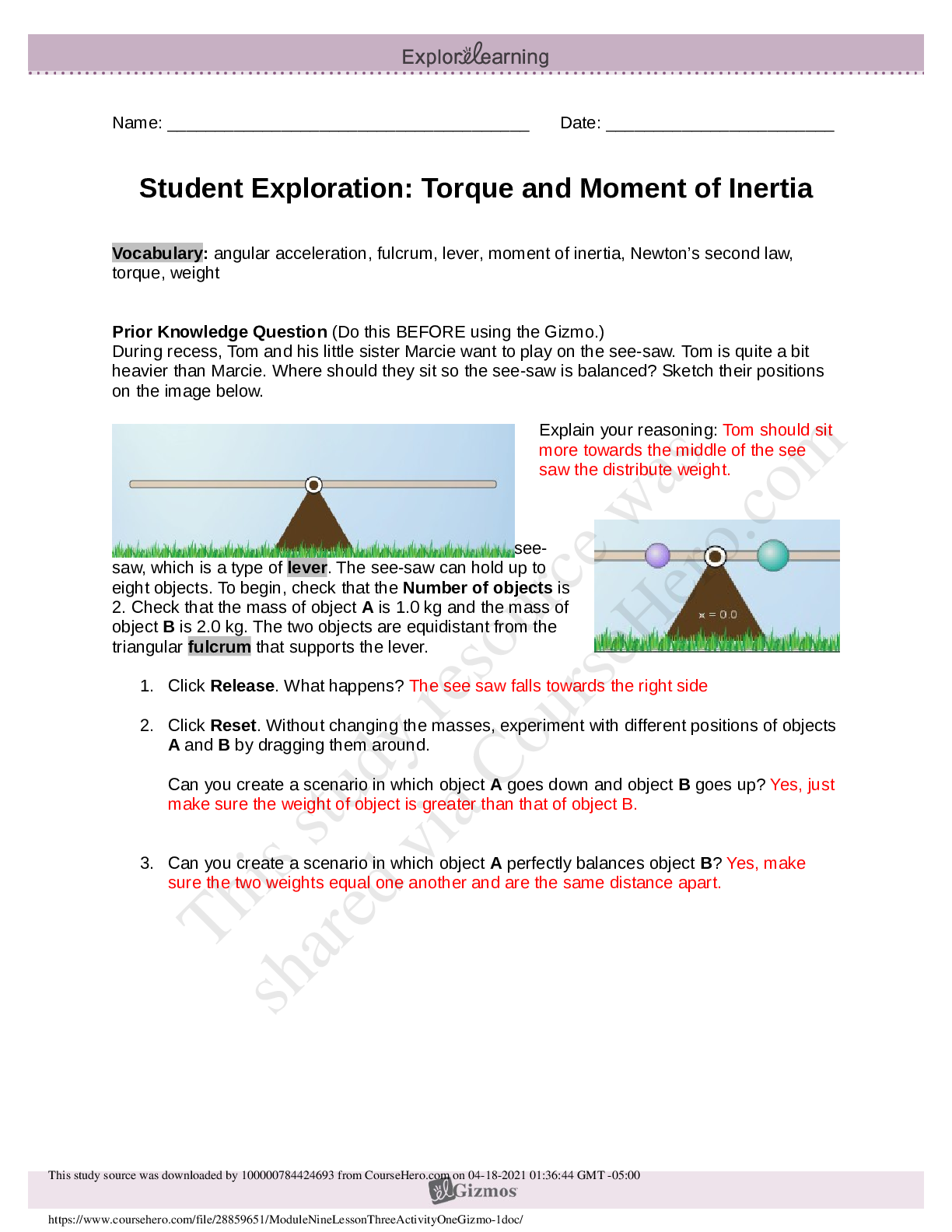
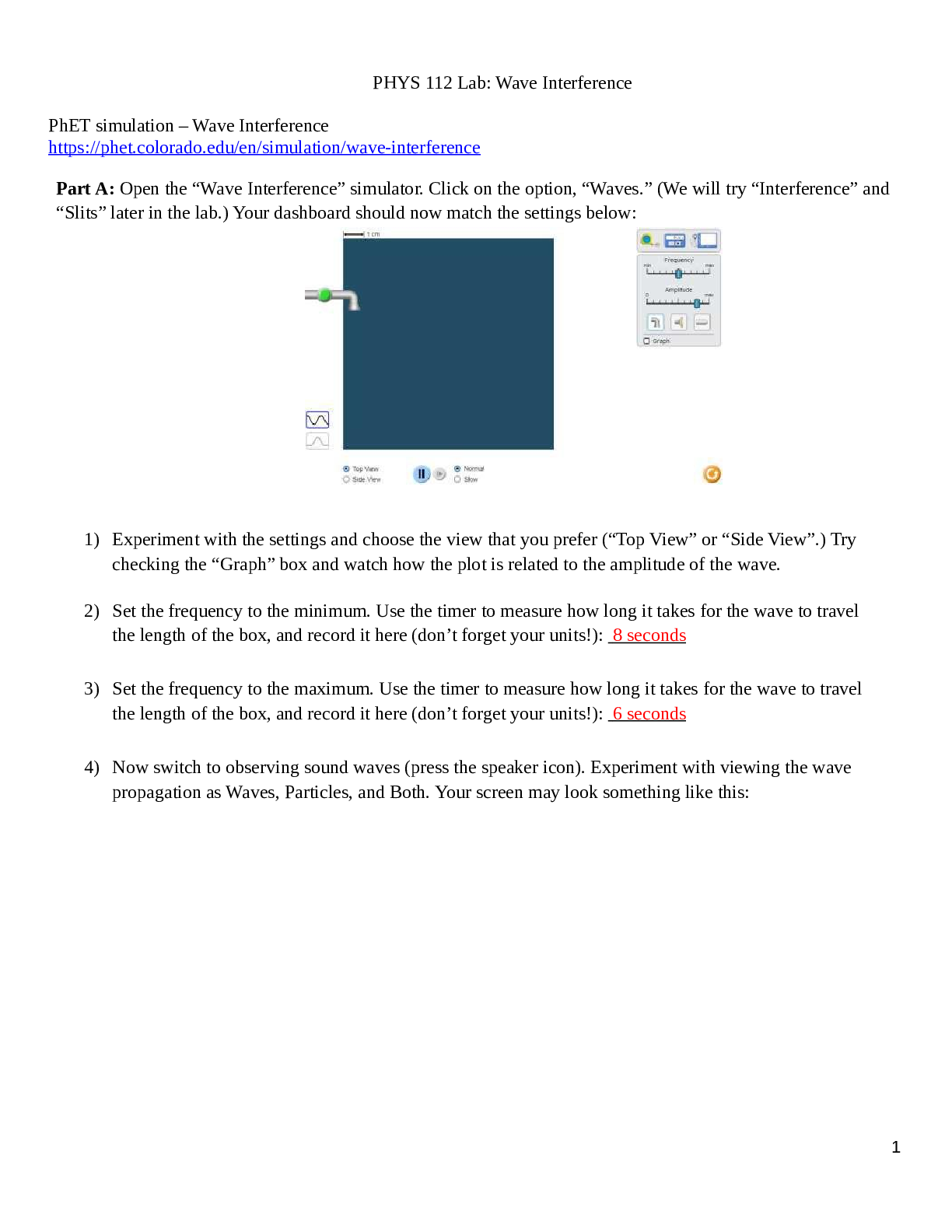
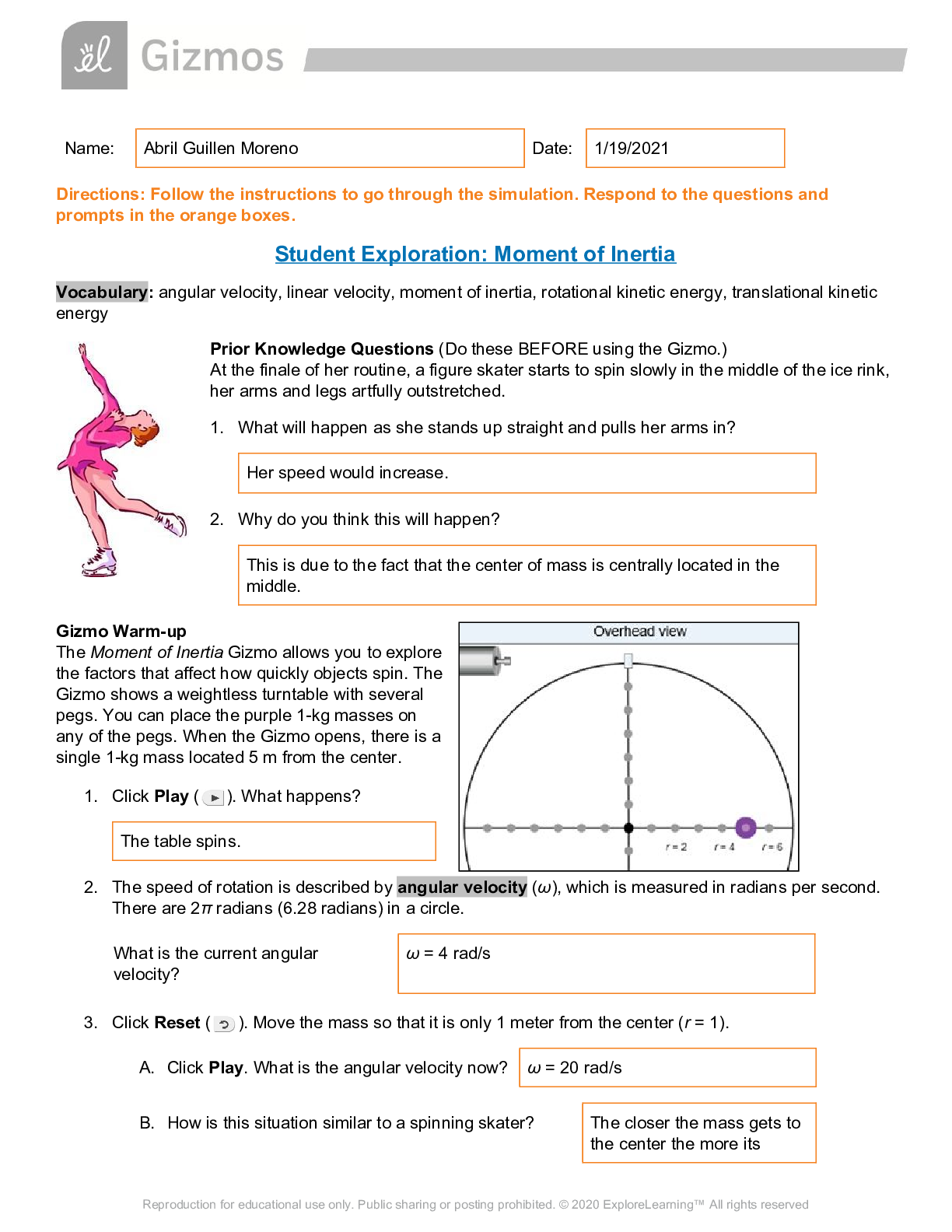
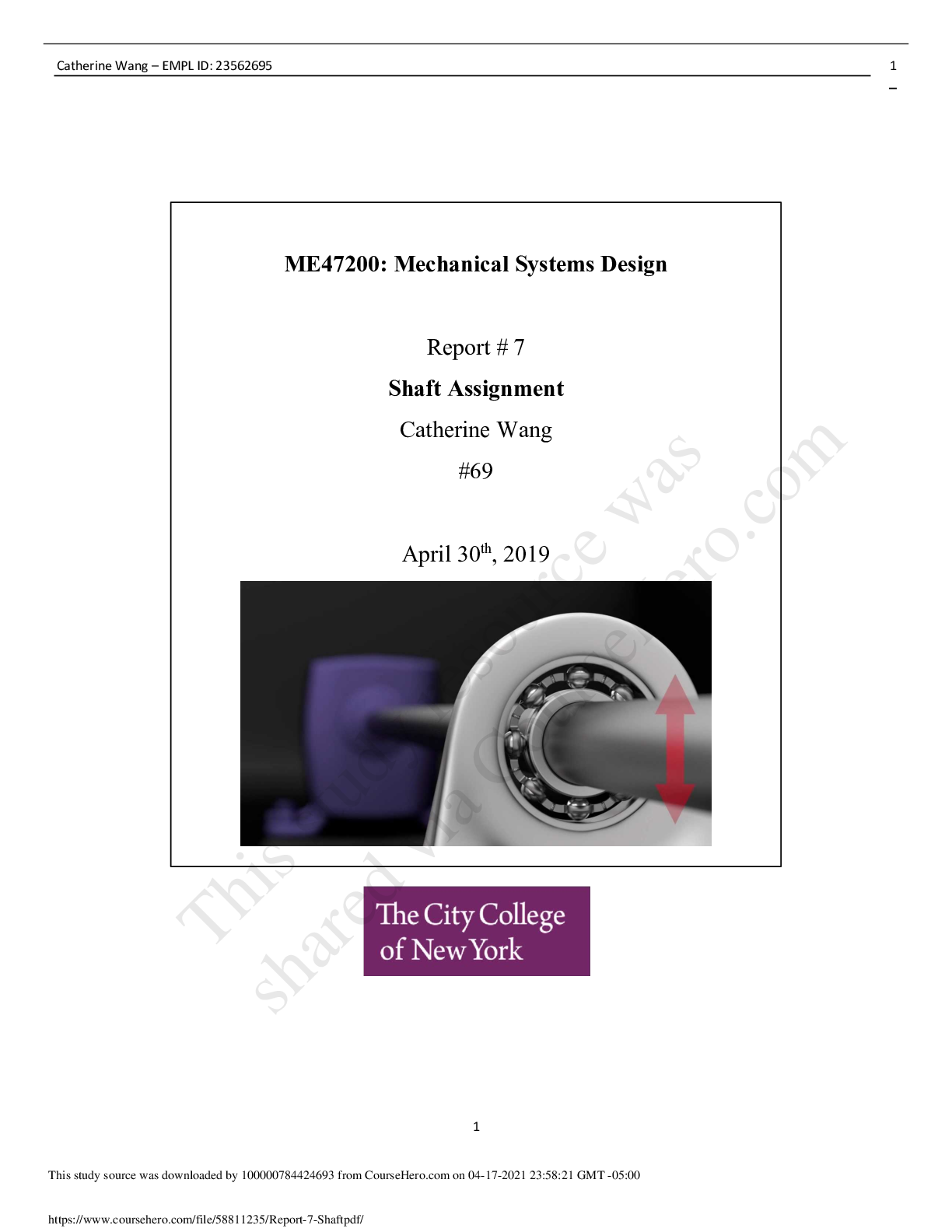
.png)
